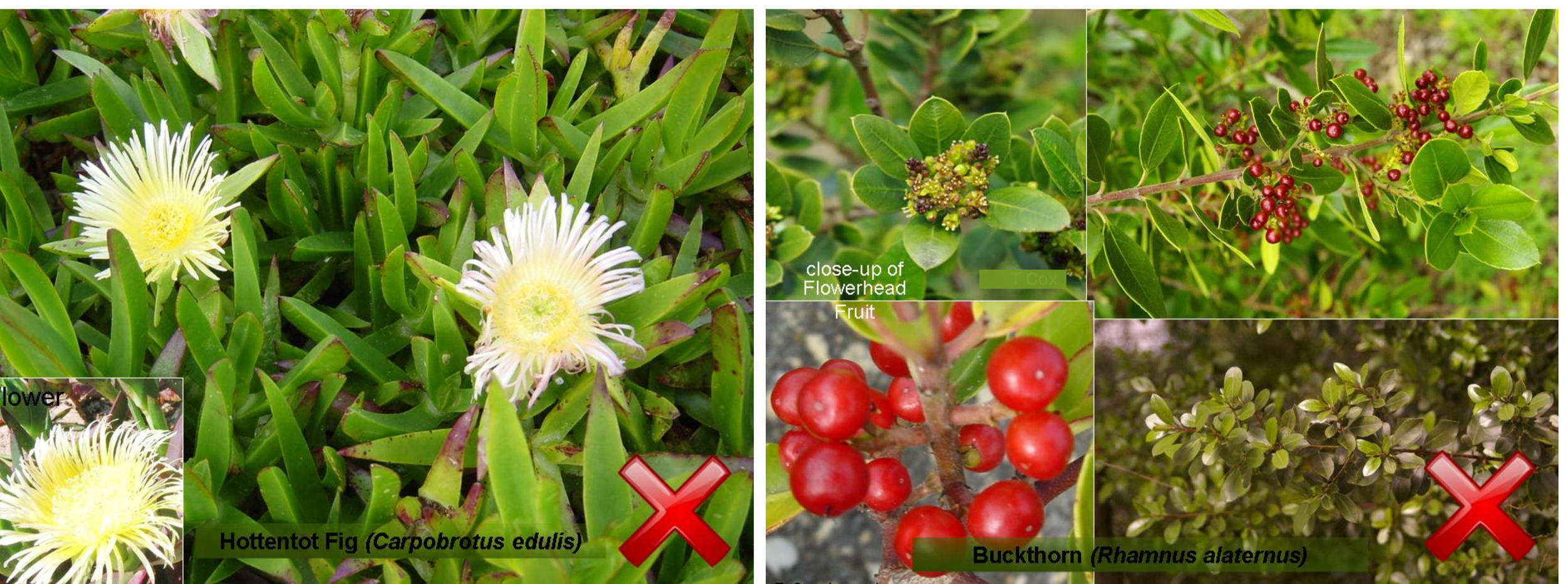
What can you do to protect our coastal vegetation from the spread of environmental weeds?
Wherever you live there are plants that either should not be grown in gardens or should be carefully managed to avoid them spreading. Garden plants that “escape” over the fence are environmental weeds. Weeds are one of the major threats to Australia's natural environment. Major weed invasions change the natural diversity and balance of ecological communities. These changes threaten the survival of many plants and animals because the weeds compete with native plants for space, nutrients and sunlight.
Top 7 coastal weeds on Lower Eyre Peninsula
Polygala (Polygala myrtifolia)
Buckthorn (Rhamnus alaternus)
Asparagus weeds, including Bridal creeper, Bridal veil, and asparagus ferns
Cotoneaster sp.
Pink Diosma (Coleonema pulchellum)
Freesia (Freesia alba x leichtlinii)
Lavatory creeper (Dopogan lignosus)
**Succulent plants including Pigs ear and Aeoniums are a problem if plant material is disposed of by dumping in coastal reserves. Never dispose of any garden plants in bushland as they are a potential weed risk
If you don’t know what plants are invasive in your area find out from us or the EP Landscape Board.
For information on local pest plants, click here.
Weeds may out-compete native plants because they may not be affected by the pests or diseases that would normally control them in their natural habitats. The disturbed environment provides different conditions that better suit the invading weed. As a result the weed may:
grow faster than native plants and successfully compete for available nutrients, water, space and sunlight
reduce natural diversity by smothering native plants or preventing them from growing back after clearing, fire or other disturbance
replace the native plants that animals use for shelter, food and nesting.
Weeds are often excellent at surviving and reproducing in disturbed environments and are often the first species to colonise and dominate in these conditions.



